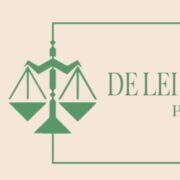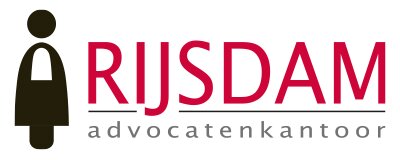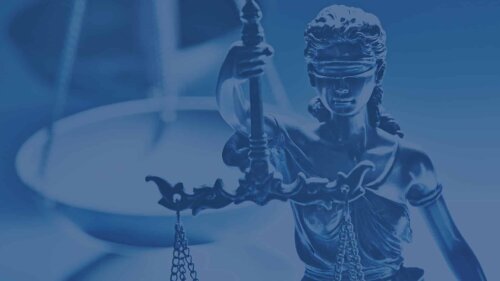Best DUI & DWI Lawyers in Leiden
Share your needs with us, get contacted by law firms.
Free. Takes 2 min.
List of the best lawyers in Leiden, Netherlands
About DUI & DWI Law in Leiden, Netherlands
Driving under the influence (DUI) and driving while intoxicated (DWI) are serious offenses in Leiden, as in the rest of the Netherlands. In local Dutch law, these terms typically refer to operating a motor vehicle after consuming alcohol or drugs above legal limits. The authorities actively enforce these laws in order to ensure road safety and prevent accidents caused by impaired driving. Being charged with a DUI or DWI in Leiden can have significant consequences, including fines, license suspension, and even imprisonment depending on the circumstances.
Why You May Need a Lawyer
If you are accused of a DUI or DWI in Leiden, you may face complex legal proceedings and possible penalties. Legal advice is crucial in situations such as:
- Challenging the evidence against you, such as breathalyzer or blood test results
- Navigating court procedures and deadlines
- Minimizing fines, license suspension, or jail time
- Dealing with repeat offenses or aggravating circumstances
- Seeking reinstatement of your driving privileges
- Assistance if you are a foreign national facing DUI or DWI charges while in the Netherlands
An experienced DUI & DWI lawyer can help you understand your rights, build a strong defense, and guide you through interactions with law enforcement and the legal system.
Local Laws Overview
In Leiden, as well as across the Netherlands, there are strict laws regulating DUI and DWI offenses. Key points include:
- The legal blood alcohol concentration (BAC) limit is 0.5 g/l for most drivers.
- For novice drivers (those licensed for less than five years), the BAC limit is lower at 0.2 g/l.
- There is zero tolerance for driving under the influence of drugs, including cannabis, amphetamines, and other controlled substances.
- Police may conduct roadside checks, and refusing a breathalyzer or blood test is a criminal offense.
- Penalties for DUI or DWI vary depending on the severity of the offense, prior convictions, and whether there were aggravating factors such as causing an accident or endangering others.
- Possible penalties include fines, driving bans, mandatory participation in education or rehabilitation programs, and imprisonment for serious cases.
Frequently Asked Questions
What is the legal alcohol limit for drivers in Leiden?
The legal limit is 0.5 grams per liter (g/l) of blood for most drivers. For novice drivers who have had their license for less than five years, the limit is 0.2 g/l.
What happens if I refuse a breathalyzer or blood test?
Refusing to take a breathalyzer or blood test is a criminal offense in the Netherlands and can result in penalties similar to or more severe than those for DUI or DWI.
What are the penalties for a first-time DUI or DWI offense?
Penalties may include fines, temporary driving bans, participation in education programs, and in some cases, imprisonment, especially if there was danger to others or property damage involved.
Will I get a criminal record if I am convicted of DUI or DWI in Leiden?
In many cases, a DUI or DWI conviction will result in a criminal record, particularly for more serious offenses or repeat violations.
Can foreign nationals be prosecuted for DUI or DWI in Leiden?
Yes, the laws apply equally to residents and visitors. Foreign nationals may face additional immigration consequences or problems with their driver’s license in their home country.
Are there any alternatives to prosecution or penalties for DUI or DWI?
In certain cases, individuals may be offered the option to attend a rehabilitation or education program as part of or in lieu of prosecution or harsher penalties, depending on the case details and prior history.
What drugs are covered under DWI laws in Leiden?
DWI laws apply to any controlled substance, including cannabis, amphetamines, cocaine, opioids, and prescription medication that impairs driving ability.
Can I drive after taking prescription medication?
Only if the medication does not impair your ability to drive. Some medicines warn against operating vehicles. Driving while impaired by a legal prescription can still result in a DWI charge.
How does the police test for drugs or alcohol?
Police may use a breathalyzer for alcohol and conduct saliva or blood tests for drug screening. Roadside checks are common, especially around holidays and weekends.
What should I do if I am arrested for DUI or DWI in Leiden?
Remain calm, cooperate with authorities, and seek legal advice as soon as possible. Do not make statements without consulting a lawyer first.
Additional Resources
For more information or support, consider contacting these organizations or resources:
- The Dutch Road Safety Organization (Veilig Verkeer Nederland)
- Local police stations in Leiden
- De Raad voor Rechtsbijstand (Legal Aid Board Netherlands) for legal assistance eligibility
- The Ministry of Justice and Security (Ministerie van Justitie en Veiligheid)
- Rehabilitation and awareness programs such as LEMA (Light Educational Measure Alcohol and Traffic)
Next Steps
If you have been accused of driving under the influence in Leiden, it is important to act quickly. Start by documenting the details of your case, including the time, place, and circumstances of the incident. Contact a qualified DUI & DWI lawyer in Leiden to review your case and explain your legal options. If you are entitled to legal aid, reach out to the Legal Aid Board for potential financial support. Take any correspondence from authorities seriously and adhere to deadlines for submitting documents or attending hearings. Lastly, educate yourself about local laws and participate in any recommended rehabilitation or education programs to demonstrate responsibility and improve your chances for a favorable outcome.
Lawzana helps you find the best lawyers and law firms in Leiden through a curated and pre-screened list of qualified legal professionals. Our platform offers rankings and detailed profiles of attorneys and law firms, allowing you to compare based on practice areas, including DUI & DWI, experience, and client feedback.
Each profile includes a description of the firm's areas of practice, client reviews, team members and partners, year of establishment, spoken languages, office locations, contact information, social media presence, and any published articles or resources. Most firms on our platform speak English and are experienced in both local and international legal matters.
Get a quote from top-rated law firms in Leiden, Netherlands — quickly, securely, and without unnecessary hassle.
Disclaimer:
The information provided on this page is for general informational purposes only and does not constitute legal advice. While we strive to ensure the accuracy and relevance of the content, legal information may change over time, and interpretations of the law can vary. You should always consult with a qualified legal professional for advice specific to your situation.
We disclaim all liability for actions taken or not taken based on the content of this page. If you believe any information is incorrect or outdated, please contact us, and we will review and update it where appropriate.













